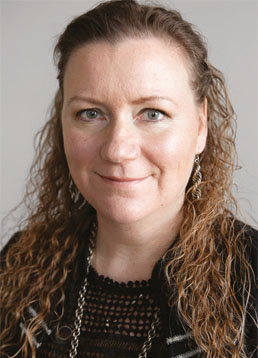Degrees, publications and external funding, these are the things on which we are measured and based on which we are funded. What if this measuring did not happen? What if there was trust in universities and we were given freedom to do what we do best?
Universities are not wild cards but responsible, polyphonically considerate and strategically thinking communities. They would use their freedom to educate future professionals, to publish research results that sink their teeth into wretched problems and to seek extra funding for large projects geared towards seeking answers to the problems of Finnish society and of the entire world. The risk for us to do something else is not especially high, because these are the things we do best and these are the things in which we want to concentrate – without constant measuring and reporting.
Trust is central in the science elections theme, because trust creates the ground for peaceful working conditions, which in turn relies on stability. At the moment, a woefully large part of the time of teaching and research staff goes into generating plans and writing reports. Few of us teacherresearchers have the highest education for these tasks. In addition to individual members of the university community, universities are in the same boat: we compete with each other for an ever smaller pot, prove that we are doing what we are measured on, and operate like model students doing the work that the law requires of us even without strict performance management. Is mutual competition the most victorious route? If there was a clear stabilising element in university funding, a share of funding that is based on trust, it would enable collaboration between both researchers and universities, when good ideas would not fall through because of uncertainty over the allocation of performance points.
Thinking is not knowing. Education keeps you on the road. It has always been understood that knowledge is worth banking on. Finland is not the promised land of economically exploitable natural resources, our success is based on high education, research knowledge and its competent utilisation. Now, too, the goals are set high, because the Vision 2030 outlines that half the Finnish people should have a higher education degree, and at the same time higher education institutions will be the best workplaces.
The direction is rather agreeable, but at a time of withering budgets it is quite challenging. Money does not bring happiness, but neither does it bring unhappiness. We will not succeed in our task with the current resources, we cannot fully offer our knowledge to benefit society, we cannot solve the challenge of continuous learning, even though we might want to do so.
Even though conversations always turn to money, it is only a reflection of values. Respect for research knowledge is actually the gist of it all, a positive attitude towards science that cuts through society is at the centre of operational preconditions. How can we solve problems related to climate change, hate speech, the shortage of clean water or, for instance, pandemic diseases without science? Do we trust opinions and suggestions as if they were knowledge? Do we make decisions based on how we feel or based on research knowledge? Science has brought us what we now regard as commonplace and ordinary, mobile phones, navigators, dental implants, the teacher education system, airplanes, fodder. Lists that have been brought on by opinions are not even worth printing on paper. Universities are homes to free science, places where we seek and find. We only yearn for trust, stability and peaceful working conditions so that we might focus on what we do best, and ultimately the question is: What if science did not exist?

Maija S. Peltola
Chair, The Finnish Union of
University Researchers and
Teachers
Painetussa lehdessä sivu 46